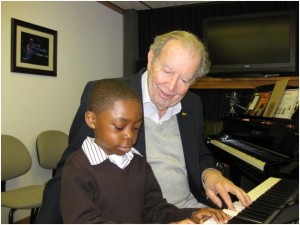Here is an excerpt from my upcoming book, “Grace in Community”. I really wanted to share it with all the friends who follow the blog – enjoy!
4 Everyone who practices sin also practices lawlessness; and sin is lawlessness.
5 And you know that He appeared in order to take away sins; and in Him there is no sin.
6 No one who abides in Him sins; no one who sins has seen Him or knows Him.
7 Little children, let no one deceive you; the one who practices righteousness is righteous, just as He is righteous;
8 the one who practices sin is of the devil; for the devil has sinned from the beginning. The Son of God appeared for this purpose, that He might destroy the works of the devil.
9 No one who is born of God practices sin, because His seed abides in him; and he cannot sin, because he is born of God.
10 By this the children of God and the children of the devil are obvious: anyone who does not practice righteousness is not of God, nor the one who does not love his brother.
(1 John 3:4-10, NASB).
This is one of those passages that I have had used against me as a “gotcha” for my crazy grace message, based on the mistaken and tired idea that a strong grace position equates to moral license. It must always be so irritating to “Lordship Salvation” type people to listen to radical grace types talk. Grace people constantly emphasize belief and forgiveness and the easier side of the Christian experience, while pretending that somehow nothing but faith in Christ and Him crucified will magically produce a practical holiness without ever pressing the point. The thing is, right here in this passage, John the apostle does the exact same irritating thing. John the apostle is one of those annoying grace people!
If you read this carefully, what he is saying here is that the community of blood-cleansed sinning and confessing children whom Jesus stands with as an advocate, who need constant confession, are not prone to sin. He is saying that grace leads to less sin, not more sin. The real problem with using this passage as an anti-grace “gotcha” is thinking that it sits divorced from the context of the rest of 1 John. The whole letter gives us a single message which embraces Christ and Him crucified, and by this the confession and cleansing of the believer.
Overall, I think it is important to notice that there is only one imperative statement in this passage, “let no one deceive you.” He does not say, “stop sinning and practicing lawlessness!” He simply observes that there are those who sin and practice sin and lawlessness. He says, there is a community of light-walkers and then there are those who are not part of that community. This is the larger discussion – he is defining the community of grace. There are sinners under the blood who confess and are cleansed, and have fellowship, and those who pretend to have no need of the blood, do not confess and are not cleansed. One of the distinguishing factors of the fellowship of the imperfect light-dwellers is that they practice (walk in) confession. They practice at saying that sin, their own sin, is wrong, and thus uphold the law even when their experience is a bit uneven. The dark dwellers practice deception and sin and the mere appearance of righteousness. I think it is no stretch at all to think this same context applies to the division between the believers and the antichrists. So I think it is good exegesis to observe that this passage is not primarily an imperative, but a pointer for discerning the true fellowship of confessors of Christ.
An idea we might pull from this passage is that we want to be born of God and abide in Him, as this is the antidote for the practice of sin. It is fascinating to note that sin is contrasted against abiding. Righteousness happens in terms of the closeness and familiarity of relationship, while sin and lawlessness occur in the context of isolation. This is all about light and darkness. If we abide in Him we are going to be abiding with other believers, because that is where He abides and He has a great interest in our interrelationships.
Where we see the word “practice”, we have the present active participle (poiwn), which indicates a persistent habit. We have someone who hones their skill persistent repetition. We either practice sin and lawlessness, or we practice righteousness. We either walk, travel, and live our lives in the context of secrecy and isolation and pretense or in the context of confession and fellowship and healing.
Suppose we have a kid who has a bit of musical talent. He may pick up a guitar and play a few chords, and in his isolation he may think he is really something. That very same kid, if he goes to a music camp over the summer, without any different skills at all, is going to see himself in a whole different light. He will be inspired and even humbled by others his own age, and he will pick up techniques that he otherwise wouldn’t know. He will be pressed into a much higher level of musicianship just by being in the presence of other musician.
After three decades of making music, jazz guitar legend Pat Metheny said, “I really do hope that some time in the next 5-10 years, I can take a year off and just work on the guitar. I really feel that I could make some major progress. I would need the time to really focus on this.” In a similar way, we may have reached amazing heights in our practice of righteousness, but we stand forever in need of confession and dependence on the blood of Jesus. It is the Christian way of things.

